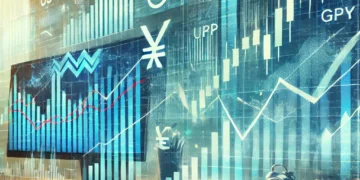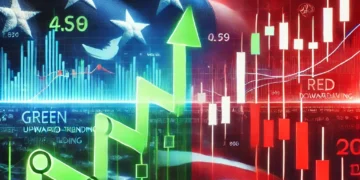Analyzing the Latest Stock Market Crash: Implications and Future Outlook
Introduction
The financial world is once again on its heels following the latest stock market crash, an event that reminds us of the inherent volatility and unpredictability of markets. This recent downturn has not only wiped out significant market gains but has also sparked widespread concern about the potential long-term impacts on the global economy. By examining real-time data and the immediate effects of the crash, this article aims to provide investors and observers with a clearer understanding of what precipitated this decline and what it might mean for the future of financial markets.
The Anatomy of the Crash
The recent stock market crash can be attributed to a confluence of factors that collectively eroded investor confidence and led to massive sell-offs. Key statistics and developments that characterized this crash include:
- Significant Drop in Major Indices: The S&P 500 and the Dow Jones Industrial Average both fell sharply, with the S&P 500 losing over 10% in a single week, marking one of its worst performances since the 2008 financial crisis.
- Volatility Index Surge: The CBOE Volatility Index, often referred to as the “fear gauge,” spiked to levels not seen since early 2020, indicating high investor anxiety.
- Sector-Specific Impacts: Particularly hard-hit were the technology and consumer discretionary sectors, where high valuations and stretched price-to-earnings ratios exacerbated the declines.
Immediate Economic and Market Impact
The ripple effects of the crash are already being felt across various aspects of the economy and financial markets:
- Investor Sentiment: There’s a notable shift in investor sentiment, from risk-taking to risk aversion, leading to increased demand for safer assets like U.S. Treasuries and gold.
- Capital Preservation: Businesses and individual investors alike are reassessing their exposure to equities, with many considering strategies to protect capital rather than seeking growth.
- Regulatory and Policy Response: Financial regulators and policymakers around the world may need to intervene to ensure market stability, potentially through monetary easing or other forms of financial stimulus.
Long-Term Implications
While it’s still early to definitively predict the long-term effects, several potential outcomes could shape the future of trading and investment:
- Market Correction or More Prolonged Downturn?: Depending on the underlying economic indicators, such as employment rates, manufacturing data, and consumer spending, this crash could either be a short-term correction or signal a more extended bear market.
- Changes in Investment Strategies: The crash may lead to a reevaluation of investment strategies, particularly concerning risk management and asset allocation.
- Innovation and New Opportunities: Periods of market stress often lead to innovation in financial products and strategies, offering new opportunities for prepared investors.
The recent stock market crash is a stark reminder of the complexities and uncertainties inherent in stock trading. As we look to the future, it’s essential for investors to remain vigilant, informed, and flexible, adapting their strategies to accommodate changing market conditions. Moreover, understanding the causes and impacts of these downturns is crucial for preparing for future volatility. Ultimately, while the market’s immediate future may seem daunting, those equipped with knowledge, strategic foresight, and resilience may find opportunities in the chaos. As always, a balanced approach to risk and reward will be paramount as we navigate through these turbulent times.
























